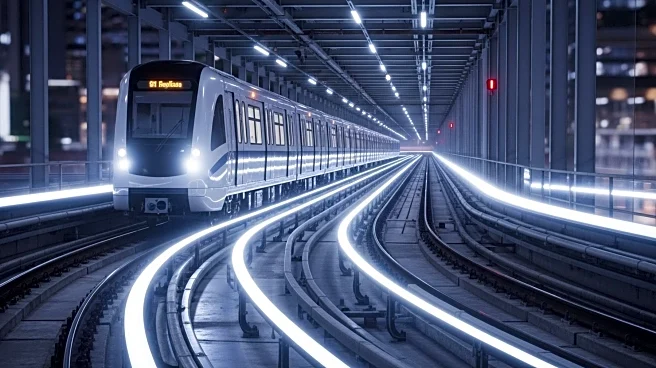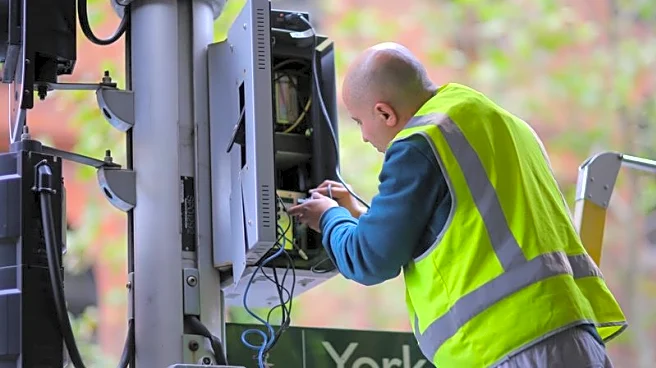What's Happening?
The Chicago Transit Authority (CTA) is proposing fare increases as it faces a significant budget gap that could lead to substantial service cuts. The proposed fare hikes, which would be the first since 2018, include a 25-cent increase per ride, raising bus fares from $2.25 to $2.50 and train fares from $2.50 to $2.75. Day passes would increase from $5 to $6, and monthly passes from $75 to $85. The CTA is grappling with a $112 million budget shortfall for the next year, exacerbated by the depletion of federal pandemic relief funds and lower ridership levels compared to pre-2020 figures. Without additional state funding, the agency warns of potential service cuts of up to 25% starting mid-next year, marking the largest transit service reduction in its history. The CTA plans to cut administrative and management personnel before reducing service. The agency's proposed 2026 budget, totaling approximately $2.09 billion, assumes no new funding from state lawmakers.
Why It's Important?
The proposed fare hikes and potential service cuts by the CTA could significantly impact Chicago residents who rely on public transportation for daily commutes. Increased fares may place a financial burden on low-income riders, while service reductions could lead to longer wait times and decreased accessibility. The budget shortfall highlights the broader challenges faced by transit agencies nationwide, struggling with reduced ridership and the expiration of pandemic relief funds. The CTA's situation underscores the need for sustainable funding solutions to maintain essential transit services and support urban mobility. The agency's reliance on state funding and the potential for legislative action to address the budget gap will be crucial in determining the future of Chicago's public transportation system.
What's Next?
State lawmakers are preparing for a legislative veto session where they will attempt to pass funding legislation to support the region's transit systems and prevent the CTA's worst-case scenario. The Regional Transportation Authority (RTA) has already transferred $74 million in discretionary funds to the CTA to delay service cuts, providing lawmakers more time to secure transit funding. The CTA has prepared alternative budgets, including a 'baseline' budget assuming state intervention and a 'growth budget' contingent on $1.5 billion in new funding. These budgets aim to maintain current service levels and potentially enhance service frequency. The future of the CTA's Red Line Extension project remains uncertain due to frozen federal grant funding, with construction expected to begin next year.
Beyond the Headlines
The CTA's budget crisis and proposed fare hikes raise broader questions about the sustainability of public transit funding models in the U.S. The reliance on federal and state funding highlights vulnerabilities in transit systems, particularly in urban areas where public transportation is vital for economic activity and social mobility. The situation may prompt discussions on alternative funding mechanisms, such as congestion pricing or increased local taxes, to ensure long-term viability. Additionally, the impact of service cuts on equity and accessibility for marginalized communities could drive policy debates on transit justice and the role of public transportation in promoting inclusive urban development.










